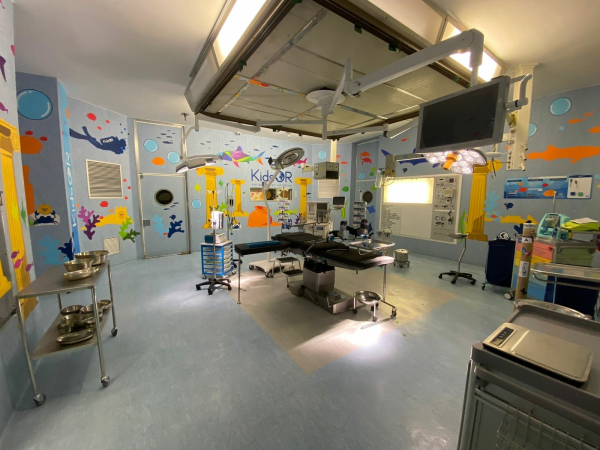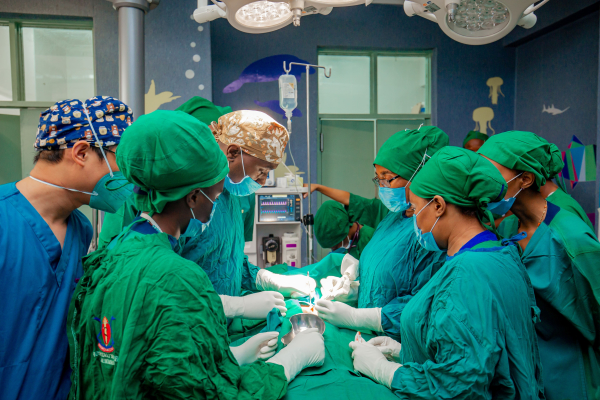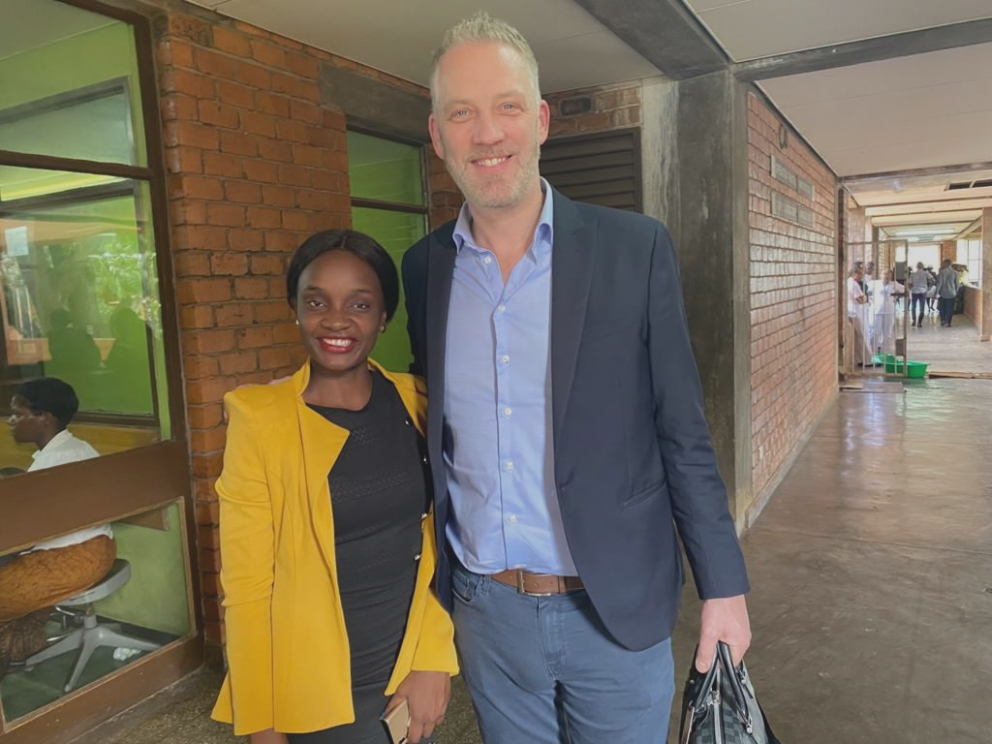
KidsOR database reaches 10,000 records
Set up in 2018, our global database, which collects paediatric surgical data in order to help countries strengthen their health services, has surpassed the landmark of 10,000 records.
Collaborating alongside the University of California, San Francisco (UCSF), we now work in partnership with 17 hospitals across 13 low- and middle-income countries in Africa and Latin America.
Emma Bryce, Health Program Evaluation Specialist at KidsOR, said: “This is a huge stride in our global collaborative research project, with the project expanding to partner with many more hospitals over the next few years. Data collection and research by partners in low- and middle-income countries is a key aspect of strengthening health service systems and quality monitoring of paediatric surgery.”
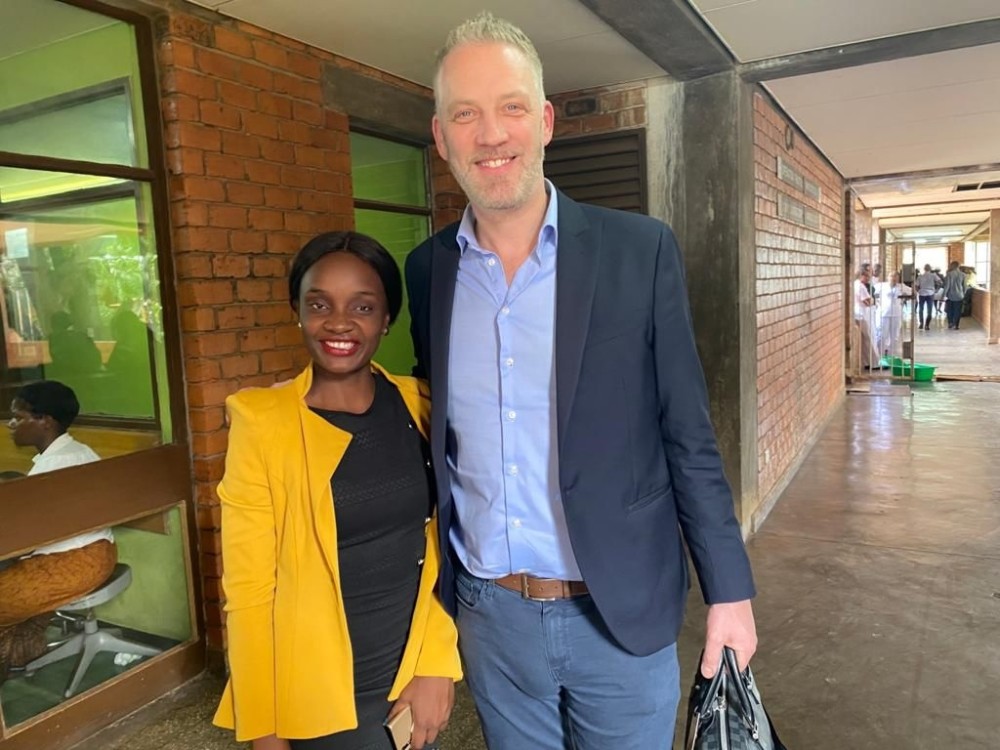
KidsOR Co-Founder Garreth Wood with Data Collector Gloria Dorothy Mutemi
The database is used by hospitals and surgeons allowing healthcare professionals to analyse their own data to inform their own decisions, rather than having to rely on information being provided by countries such as the UK.
Emma added: “Most charities and organisations engage in data collection only for the purpose of evaluating the impact of their work. The data collected for our research project at each of the individual sites forms a global database which these local teams can use for their own medical research and quality improvement.“
The collaborative research effort of KidsOR, UCSF and the individual hospital research teams means that we are working together to better paediatric surgical services on a global scale. Research is a huge part of innovating health service systems, and understanding the health needs of individual countries is integral to reaching the sustainable development goals.“
KidsOR has a hard-working team of data collectors based in each hospital collecting key demographic, clinical, and socio-economic data around the individual operations occurring. Our data collectors help us to understand the influencing factors surrounding paediatric surgery in our partner countries and to develop this global database for important collaborative research.”
David Cunningham, CEO of KidsOR, added: “Our research project is helping transform the understanding of just how impactful surgery can be. We are seeing trends that help point local authorities towards where they should spend their public health funds; we see a geographical spread of patients that help point towards where the next Operating Room should be; and we see an increasing volume of data that shows world-class quality of care is possible even in the most remote hospitals if the right people have the right tools."
"Reaching this landmark of 10,000 patients is an important first step towards the creation of a truly global dataset ready to make a strong case for wider future investment in safe surgery for children.”
David Cunningham
Professor Doruk Ozgediz, of the University of California, San Francisco, said: “The growth of this database captures a tremendous commitment from KidsOR as well as local champions in low- and middle-income countries and partner hospitals to capture the life-saving value of surgery and ensures that no child or family receiving care goes uncounted.
“This data is incredibly important for clinical care teams, hospitals, governments, training institutions and policymakers to capture the value of their work and to set priorities most relevant to their local context and challenges. The biggest challenge in global public health is making the invisible visible and this commitment achieves that objective.”
Share article
Recent Posts




Similar Posts
Namibia prioritising the lives of children.
Paediatric surgery included in Namibia's healthcare strategy going forward
